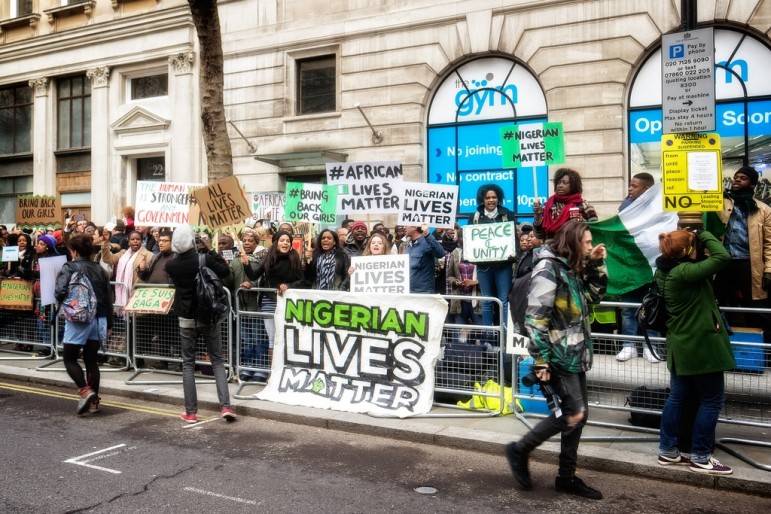
December 22, 2015; Bloomberg Business
Attacks by Islamist military group Boko Haram have “forced more than 1 million children to abandon their studies and closed at least 2,000 schools in northeastern Nigeria and neighboring countries,” according to Bloomberg News. Neighboring Cameroon, Chad and Niger are also now experiencing violence as well.
In a story this week following a UNICEF report, Bloomberg News said, “Schools have been hit by attacks as Boko Haram, which means, ‘Western education is a sin’ in the Hausa language, pursues a six-year-old campaign to establish its version of Islamic law in the region.”
Boko Haram gained world attention last year following the abduction of more than 200 schoolgirls—most of whom still have not been found—from their dormitories in the town of Chibok, which sparked the #BringBackOurGirls social media campaign championed by Michelle Obama and thousands of others. Most of the girls haven’t been found. Associated Press reports that overall, “Boko Haram’s insurgency has killed about 20,000 people and displaced 2.3 million, according to Amnesty International and the United Nations.”
Sign up for our free newsletters
Subscribe to NPQ's newsletters to have our top stories delivered directly to your inbox.
By signing up, you agree to our privacy policy and terms of use, and to receive messages from NPQ and our partners.
Since starting its war on the Nigerian government in 2009, “Boko Haram has repeatedly targeted schools, students and teachers,” reports The Guardian. Further, the New York Times adds that while “hundreds of schools in northeastern Nigeria have reopened in recent months…many classrooms are overcrowded or are used as shelter for those displaced.” Security continues to be a challenge; the instability has kept teachers from returning to class, given that as many as 600 teachers have been killed during the six-year insurgency.
“Schools have been targets of attack, so children are scared to go back to the classroom,” Manuel Fontaine, UNICEF’s regional director in West and Central Africa, said in a statement on Tuesday. “Yet the longer they stay out of school, the greater the risks of being abused, abducted and recruited by armed groups.” In fact, the Bloomberg story said, “In Nigeria, 10.5 million children are out of school,” making it the highest in the world.
And there are increasing fears lack of education will fuel further radicalism. Yan St-Pierre, terrorism analyst at Modern Security Consulting Group in Berlin, said, “There was already a problem with getting kids to school on a regular basis that simply became worse once Boko Haram emerged.”
Between bloody raids and incessant suicide bombings, Boko Haram has severely damaged what little infrastructure existed in Nigeria’s impoverished northeast at a time when the commodity-dependent country is facing a cash crunch thanks to plunging oil prices. Nigerian President Muhammadu Buhari had given the military there a December deadline to beat back the group. But, according to the site Foreign Policy, “Even with some assistance from the United States, United Kingdom, and France, that goal looks increasingly unrealistic. A multi-regional military task force has dismantled some of the group’s strongholds, forcing the extremists to rely on asymmetric tactics. Those attacks, in turn, are increasingly involving children.”—Susan Raab











